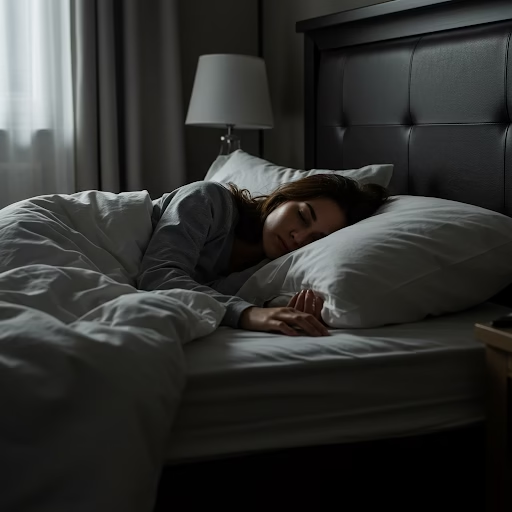Struggling with sleep as a neurodivergent individual? Finding the best sleep hygiene tips for ADHD & autism can be a game-changer. Many traditional sleep strategies fail to address sensory sensitivities, overstimulation, and irregular sleep patterns, which are common for neurodivergent individuals. This guide will help you create a sensory-friendly sleep routine tailored to your unique needs.
1. Create a Sensory-Friendly Sleep Space
Your sleep environment plays a crucial role in improving sleep quality. To minimize sensory overload, try these adjustments, these are the Best Sleep Hygiene Tips for Individuals (ADHD & Autism):
Light Control: Use blackout curtains or a sleep mask to block disruptive light.
Sound Management: White noise machines or noise-canceling earplugs can help if you’re sensitive to sounds.
Comfortable Bedding: Choose soft, tag-free, and breathable materials to reduce sensory discomfort.
2. Stick to a Neurodivergent-Friendly Sleep Routine
Rigid bedtime rules may not always work, but a flexible sleep schedule can still be effective:
Consistent Sleep-Wake Cycle: Aim to sleep and wake at similar times daily.
Bedtime Reminders: Use alarms or smart home devices as gentle prompts.
Avoid Forcing Sleep: If you can’t sleep, engage in a calming activity like reading or gentle stretching.
3. Managing Screen Time for Better Sleep
Completely avoiding screens isn’t always realistic, but modifying screen use can help:
Use Night Mode: Reduce blue light exposure by enabling “night mode” on devices.
Choose Calming Content: Avoid high-intensity videos and opt for predictable, relaxing content.
Set Limits: Use a timer or app to remind you when to put your phone away.
4. Address Racing Thoughts & Anxiety
Many neurodivergent individuals struggle with overthinking at night. Here’s how to ease nighttime anxiety:
Journaling: Write down thoughts to clear your mind.
Deep Pressure Stimulation: Try a weighted blanket for calming effects.
Guided Meditations & ASMR: Use apps or YouTube for relaxation techniques.
Also Read: Healing Urban Youth Through Nature: The Wilderness Therapy
5. Consult Healthcare Professionals
If sleep challenges persist, seek guidance:
Medical Consultation: Discuss potential melatonin supplementation or other interventions with your doctor. adhdandautism.org
Final Thoughts
Following these best sleep hygiene tips for neurodivergent individuals (ADHD & autism) can help you create a comfortable, predictable, and effective sleep routine. Experiment with these strategies and customize your approach based on what works best for you.




